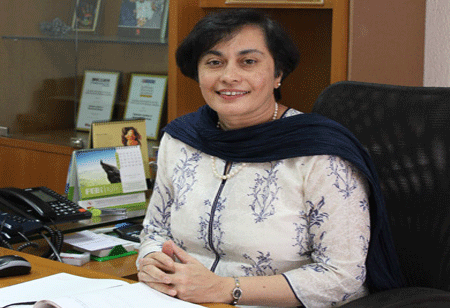
Agriculture is by far the most ‘organic’ sector in the world which serves the economy unconditionally. According to a survey by IBEF, 58 per cent of rural house-holds are dependent upon agriculture in India and agriculture is one of the most exported commodities in the world. As there is a sudden jump in the use of technology in different sec-tors, it is observed that the agricultural sector is also getting inclined towards technology. AI (Artificial Intelligence) being a prime reason behind this shift.
The population of the world is rapidly increasing and so is the demand for the food supply. The traditional methods of agriculture are not enough to provide for the demand rate. Agribusiness is a blooming field of professionals who are enhancing the work rate to feed the demands.
Initially, the application of AI for an organic process like agriculture was certainly against all traditional principles. And there was a lot of resistance, to begin with. However, the demand for more efficiency and accuracy in the sector ended up asking for more involvement of AI.
AI is a boon for a lot of sectors and it is a technology for the future. The future beholds the idea of urbanization which is inevitable. Considering the drastic changes happening all around the world, people involved in agribusiness require to outperform themselves and show inexplicably exquisite results. Those results are bounded by the limited time available and human errors. So the use of AI and other technologies is the need of the hour which can certainly help overcome these challenges and will make the entire process error-free and effective.
The sector is witnessing the massive application of IoT and AI technologies as these technologies help in automating and accelerating the otherwise lengthy monitoring process thus providing increased efficiency and accuracy
Application of AI in Agriculture: Crop and Soil monitoring
Agriculture is all about the natural process. The soil and crop are two variables of the business. Continuous monitoring of both variables is extremely critical.Recently, the sector is witnessing the massive application of IoT and AI technologies as these technologies help in automating and accelerating the otherwise lengthy monitoring process thus providing increased efficiency and accuracy.
Predictive agricultural analytics
Risk prediction and time-keeping during the process of agriculture are a must. AI is proving its worth in the vital parts of this field. Sowing seeds, watering the crops, pest attacks, and many more events are automated and are accurately predicted and executed. This reduces a lot of human efforts thereby providing a lot of comfort in the entire process.
Demand and Supply change analytics
Keeping tabs on the demands and supply chain is a must. Analytics will only help the cause and is perfectly efficient to maintain the f low of the business. Companies are using real-time data to enhance profitability.
Yield Mapping
AI provides the comfort of yield mapping before even starting your agribusiness. Yield mapping is a prediction tool that helps in identifying the location which will provide the maximum yield together with the quantity of this yield in the given conditions. Agricultural specialists can now predict the potential soil yields for a given crop through all the necessary data through yield mapping.
Bringing in more investments
Looking at the current growth prospects in agriculture, there is a greater need to bring in more investments in this sector and acting upon them with maximum efforts. More and more companies and brands are venturing into this sector. The use of advanced technologies like AI and ML are making the whole process effective and efficient thus making the agribusiness field more attractive than ever before.
AI in agribusiness can enhance the abilities of farmers to maximize their potential. It supports the f low of traditional to innovative farming. Also, AI looks into the prime objective of managing the risks to help farmers in an effective manner. Implementing AI in agribusiness on a global scale seems a bit far-fetched dream right now. But it is the way forward with the new and promising opportunities in the field of agriculture.
We use cookies to ensure you get the best experience on our website. Read more...